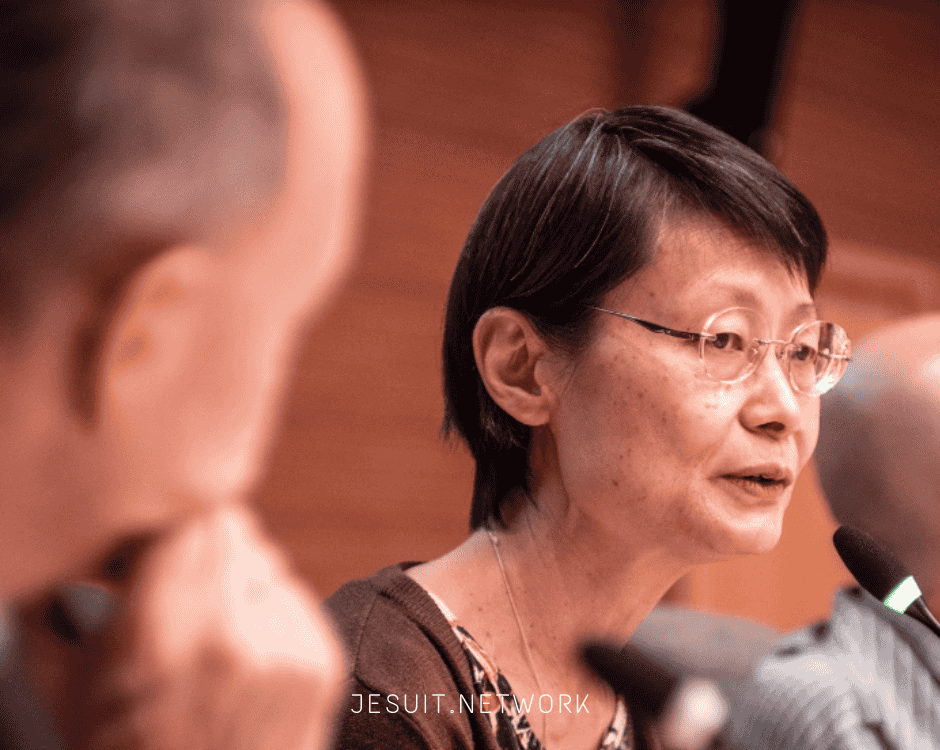Este sitio web utiliza cookies para que podamos ofrecerle la mejor experiencia de usuario posible. La información sobre cookies se almacena en su navegador y realiza funciones como reconocerle cuando vuelve a nuestro sitio web y ayudar a nuestro equipo a comprender qué secciones del sitio web le resultan más interesantes y útiles.
A Transformative Networking Process on Sustainability Science and Values
In order to address many of today’s challenges related to ecology and sustainability, it is clear that we have to better understand our changing reality and what science has to tell us about planetary boundaries and where we are exceeding thresholds. These boundaries do not mean an end to development, but they do call on us to make significant changes in lifestyle and should be viewed as starting points for more “meaningful, sustainable, and inclusive human development and ecology” (GIAN Ecology, 2014).
On November 3-4, 2014, a small group of Jesuits and scientists gathered from different parts of the world and from different scientific fields at the University of Namur in Belgium. Participants from Centre Avec in Brussels, the Newman Institute in Uppsala, Comillas University in Madrid, the Institute for Social & Development Studies in Munich, the Faraday Institute in Cambridge, Namur University in Belgium, the Jesuit Conference of Asia Pacific-Ecology and the Jesuit European Social Centre were all present.
The goal of the encounter was to develop a working document based on interdisciplinary scientific discussions currently taking place while at the same time including a discussion of spiritual background, “a spirituality of wellbeing that looks inside the self to find meaning and how one is connected around and with the planet.” Science alone cannot communicate the message of engagement needed for people to develop a new attitude of care for the planet. This draft will serve as the foundation for dialogue, first with other scientific colleagues and later in an interfaith context.
Some of the ideas that emerged from the conversation include:
- Interdependence is key. We must recognize our interdependence with nature and with each other and that even small actions may have a powerful impact on the planet.
- Balanced collaboration and responses are needed among all stakeholders. Communities, scientists, governments and businesses are all interconnected, each looking for interaction and win-win relationships.
- A resilient network of Catholic institutions working on ecology is needed to foster and sustain change. Resilience in this context means that the network must have continuity and that those currently leading efforts must be easily replaced.
- There is a need to explore narratives and images of hope from all over the world. The challenge is to introduce spirituality into the discourse in a way that also has the capacity to engage the secular.
This discussion is part of a process to deepen the dialogue on science and transformative values and help encourage greater social engagement and commitment to a more sustainable world. A powerful example of interdisciplinary networking, this dialogue seeks to gather ideas and responses from people around the world, across sectors and levels, to engage, plan and mobilize people for meaningful action.
The encounter at Namur University forms part of the second stage of The Stockholm Dialogue on Sustainability Science and Values, a process promoted by the Global Ignatian Advocacy Network (GIAN) on Ecology. GIAN Ecology is dedicated to promoting awareness, information, and engagement in environmental concerns in the Ignatian community. Click here to see the other initiatives promoted by GIAN Ecology.





